Boost Your Brain Power
Science-backed puzzle solving for cognitive health and mental fitness in seniors
10 Brain Training Benefits of Puzzle Books for Seniors
Science-backed evidence shows that regular puzzle-solving can boost cognitive function, improve memory, and potentially delay cognitive decline by up to 2.5 years. Discover how puzzle books designed for seniors can keep your mind sharp and engaged.
Latest Research (2024): A Texas A&M study of over 9,000 adults found that puzzle activities were the strongest predictors of reasoning skills and top predictors of memory and verbal ability. Regular puzzle solvers scored cognitively similar to people 1-2 years younger than their actual age.
Contents
- Enhanced Memory Function
- Increased Cognitive Flexibility
- Faster Information Processing
- Better Attention and Focus
- Stronger Problem-Solving Skills
- Improved Verbal and Language Skills
- Enhanced Working Memory
- Stress Reduction and Relaxation
- Increased Social Engagement
- Potential Delay of Cognitive Decline
- How to Start Your Brain Training Journey
Quick Reference: Best Puzzle Types for Specific Cognitive Benefits
| Cognitive Benefit | Best Puzzle Type | Research Evidence | Time to See Benefits |
|---|---|---|---|
| Memory Enhancement | Crosswords | 2.5 year delay in memory decline | 1-3 months |
| Processing Speed | Sudoku | 8 years younger cognitive performance | 2-6 weeks |
| Attention & Focus | Word Search | Significant improvement vs non-solvers | 2-4 weeks |
| Verbal Skills | Crosswords | Top predictor of verbal ability | 4-8 weeks |
| Working Memory | Mixed Puzzles | UCLA study: effective improvement | 3-6 weeks |
| Stress Reduction | Any Preferred Type | Flow state promotes relaxation | Immediately |
💡 Pro Tip: For maximum cognitive benefits, aim for 3-4 puzzle sessions per week, mixing different puzzle types. Jump to getting started guide →
Quick Answer: Do Puzzle Books Really Benefit Senior Brain Health?
Yes, scientific research confirms puzzle books provide significant cognitive benefits for seniors:
- Memory improvement: Regular crossword solving delays memory decline by 2.5 years
- Processing speed: Number puzzle solvers perform cognitively 8 years younger
- Attention enhancement: Word search puzzles significantly improve focus vs non-solvers
- Cognitive protection: Puzzle activities are top predictors of reasoning and verbal ability
Recommendation: Solve puzzles 3-4 times per week, mixing crosswords, sudoku, and word search for optimal cognitive health benefits.
2024 Research Highlights
Study Participants
Texas A&M study analyzed puzzle habits across diverse age groups
Years Delayed
Memory decline postponement through regular crossword solving
Years Younger
Cognitive performance equivalent of regular puzzle solvers
1. Enhanced Memory Function
Scientific Evidence
A groundbreaking study published in 2024 found that adults who completed crossword puzzles regularly experienced memory decline that was delayed by an average of 2.5 years compared to non-puzzle solvers.
- • Crosswords specifically target episodic memory (personal experiences and events)
- • Word puzzles strengthen semantic memory (general knowledge and vocabulary)
- • Number puzzles like Sudoku enhance spatial-temporal memory
- • Mixed puzzle books provide comprehensive memory training across all types
How Puzzles Boost Memory:
Retrieval Practice
Pattern Recognition
Recommended Memory-Boosting Books:
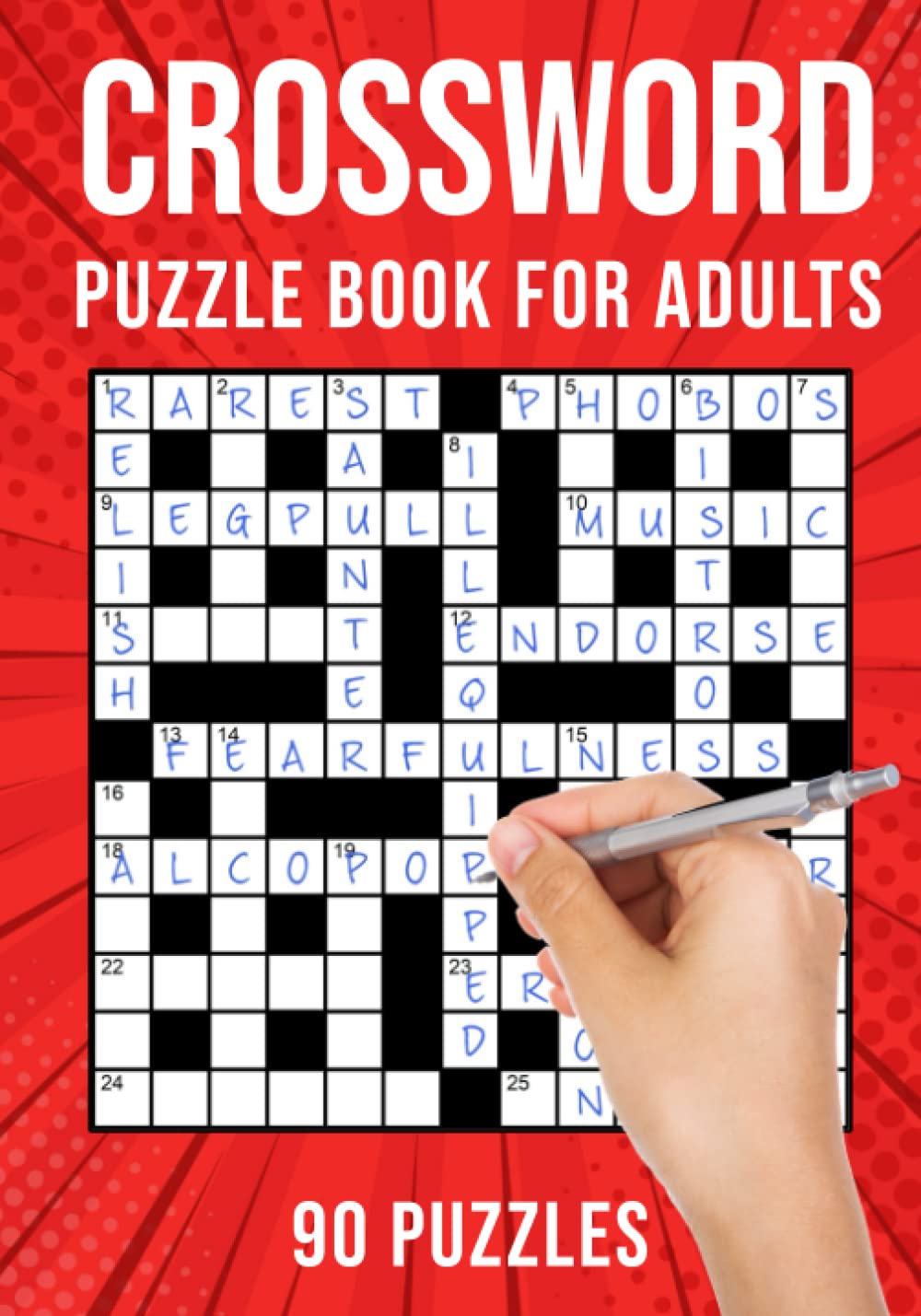
Crossword Puzzle Book for Adults: Quick Daily Cross Word Activity Books | 90 Puzzles ( UK Version)
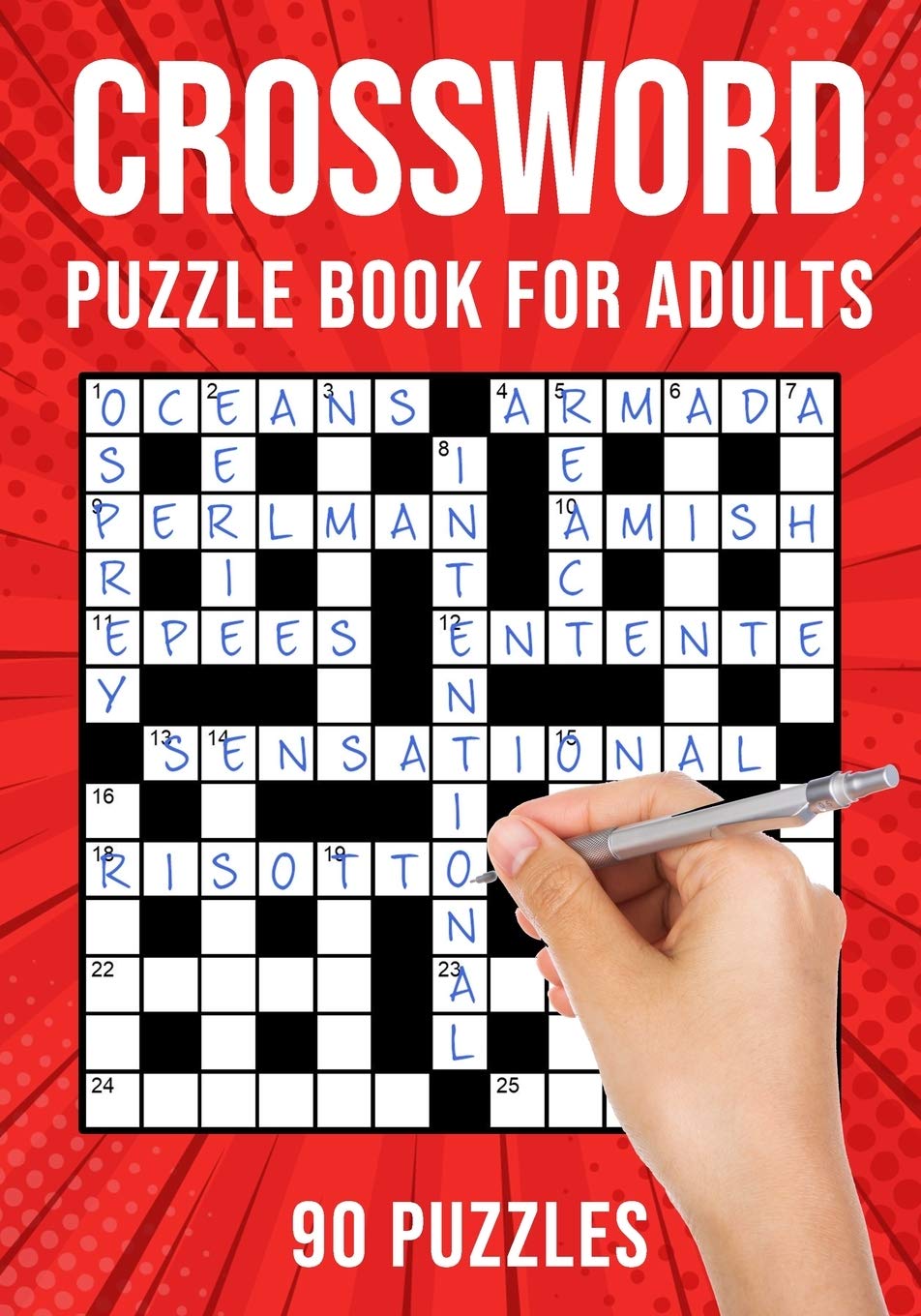
Crossword Puzzle Books for Adults: Quick Cross Word Puzzles Activity Book | 90 Puzzles (US Version)
2. Increased Cognitive Flexibility
Cognitive flexibility is your brain's ability to switch between different concepts or adapt your thinking to new situations. This mental agility is crucial for problem-solving and adapting to daily challenges that seniors often face. Regular practice with crossword puzzles is particularly effective for building this skill.
Research Findings
The 2024 POINTER study of 2,100 adults aged 60-79 found that participants who engaged in varied mental activities showed significant improvements in executive function and mental flexibility.
How Different Puzzle Types Build Flexibility:
Crossword Puzzles
Sudoku
Word Search
3. Faster Information Processing
Key Research Finding
UCLA Health research shows that seniors who regularly engage in brain games, including puzzles, demonstrate improved processing speed - how quickly your brain receives, understands, and responds to information.
Processing Speed Benefits:
Daily Tasks
Safety
Independence
Speed-Building Puzzle Books:
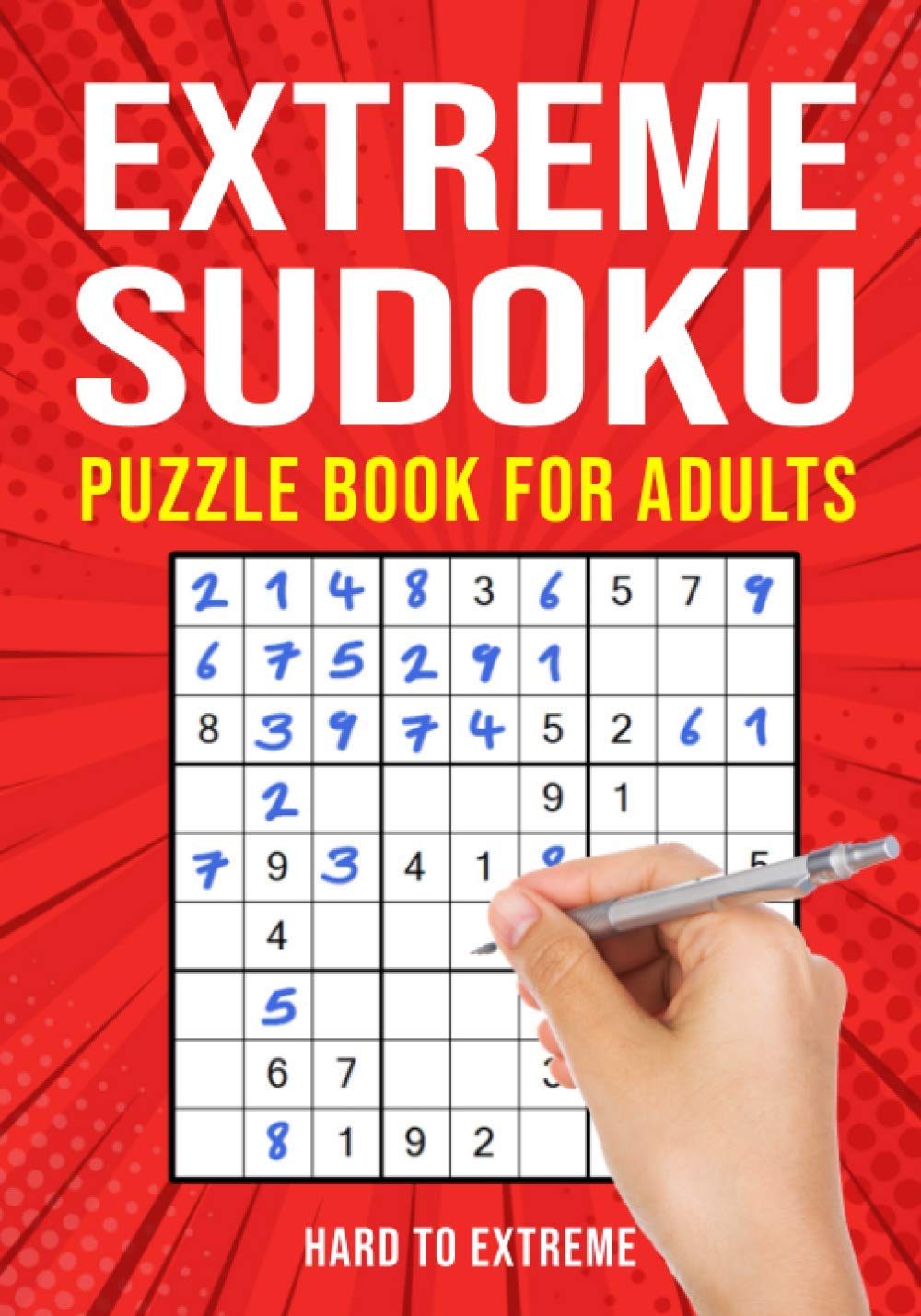
Extreme Sudoku Puzzle Book for Adults: Hard to Extremely Hard | 156 Difficult Puzzles
4. Better Attention and Focus
Maintaining sustained attention becomes increasingly challenging with age, but regular puzzle solving acts as targeted training for your brain's attention networks. Word search puzzles are particularly effective for developing focused attention skills.
Scientific Evidence
Research published in 2024 found that seniors who completed crossword puzzles even once a month showed significantly better focus and attention compared to non-puzzle solvers. Daily puzzle solvers showed even greater improvements.
Types of Attention Improved by Puzzles:
Sustained Attention
Selective Attention
Divided Attention
5. Stronger Problem-Solving Skills
Puzzles are essentially structured problems that require systematic thinking, pattern recognition, and logical deduction - skills that transfer directly to real-world challenges.
Problem-Solving Skills Developed:
Analytical Thinking
Pattern Recognition
Strategic Planning
Persistence
6. Improved Verbal and Language Skills
Research Highlight
The Texas A&M 2024 study identified puzzle activities as "top predictors of verbal ability" among over 9,000 participants, showing that regular puzzle solving significantly enhances language processing capabilities.
Language Benefits by Puzzle Type:
Crosswords
Word Search
Anagram Puzzles
Language-Building Puzzle Books:
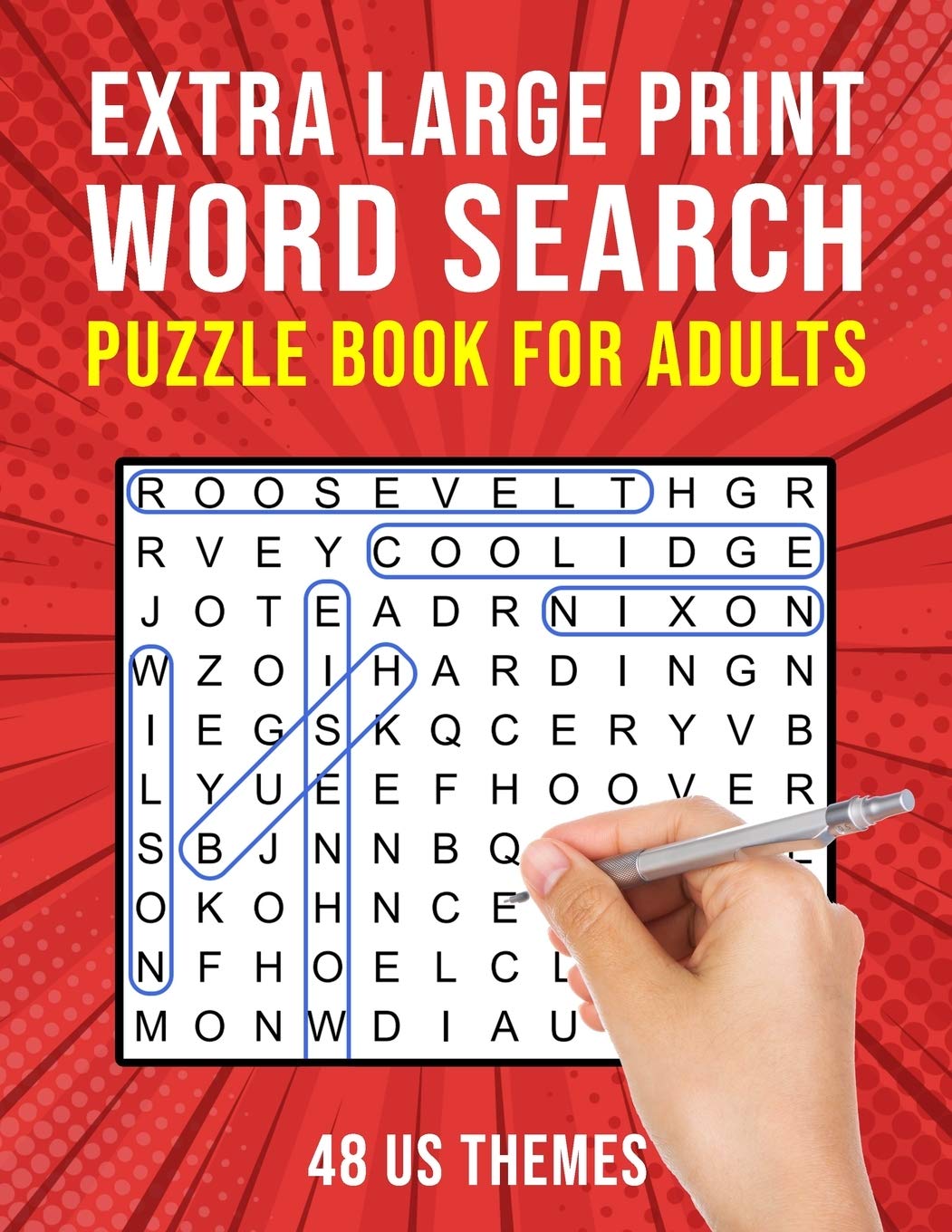
Extra Large Print Word Search Book for Adults: 48 US Themed Wordsearch Puzzles for Seniors or Visually Impaired
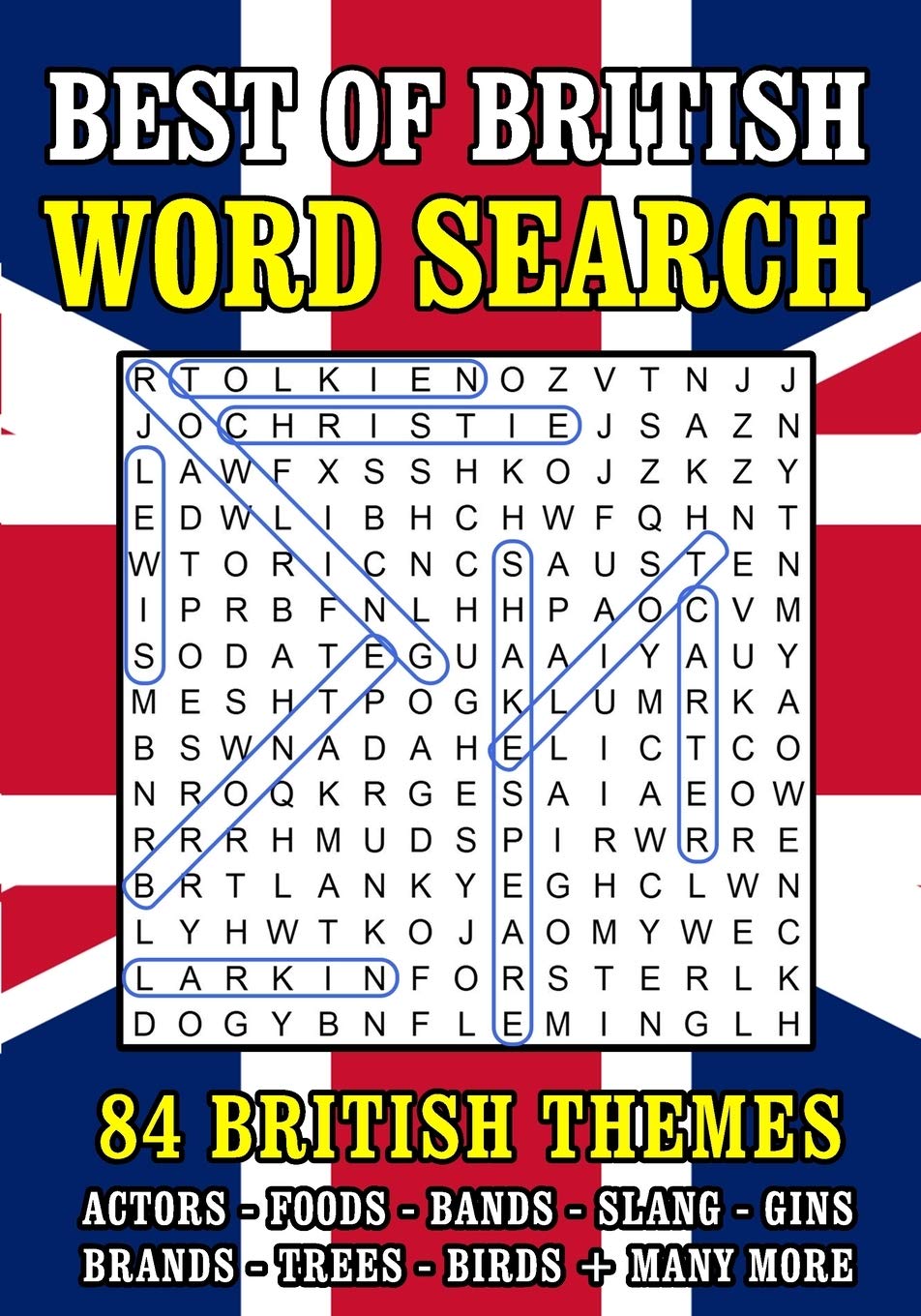
Word Search Puzzle Books for Adults: British Themed Wordsearch Activity Book | 84 Large Print Puzzles (UK Spelling)
7. Enhanced Working Memory
Working memory is your brain's ability to hold and manipulate information temporarily - like remembering a phone number while dialing it. This cognitive function often declines with age, but puzzle solving can help maintain and improve it.
Clinical Evidence
UCLA Health research demonstrates that computerized brain games, including puzzle-solving, effectively improve working memory in adults over 60, with benefits transferring to real-world tasks like following directions and managing multiple tasks.
How Puzzles Train Working Memory:
Information Juggling
Mental Manipulation
Pattern Updates
Goal Maintenance
8. Stress Reduction and Mental Wellness
While cognitive benefits grab headlines, puzzle solving also provides significant mental health benefits through stress reduction and promotion of a meditative, focused state of mind. This mindfulness aspect makes brain games an excellent addition to any senior's wellness routine.
Stress-Relief Mechanisms:
Mindful Focus & Flow State
Sense of Achievement
Routine and Structure
"I started doing crosswords daily after my doctor recommended brain training activities. Within two months, I noticed I was sharper during conversations and felt less anxious overall. The 20 minutes I spend on puzzles each morning has become my favorite part of the day."
10. Potential Delay of Cognitive Decline
Most Significant Finding
The most compelling research suggests that regular puzzle solving may help delay the onset of cognitive decline. While not a cure or prevention for dementia, the evidence points to puzzles as part of a brain-healthy lifestyle.
Current Research Status:
Observational Evidence
Controlled Studies
Holistic Approach
Important Note
While the research is promising, experts emphasize that puzzle solving should complement, not replace, other proven brain-health strategies like regular exercise, social engagement, a healthy diet, and medical care. Always consult with healthcare providers about cognitive concerns.
How to Start Your Brain Training Journey
Ready to harness these cognitive benefits? Here's how to begin an effective puzzle-solving routine that maximizes brain training benefits while remaining enjoyable and sustainable.
Expert Recommendations:
Frequency: 3-4 Times Per Week
Variety is Key
Progressive Difficulty
Consistency Over Intensity
Perfect Starter Books for Seniors:

Extra Large Print Word Search Book for Adults: 48 US Themed Wordsearch Puzzles for Seniors or Visually Impaired

Crossword Puzzle Book for Adults: Quick Daily Cross Word Activity Books | 90 Puzzles ( UK Version)
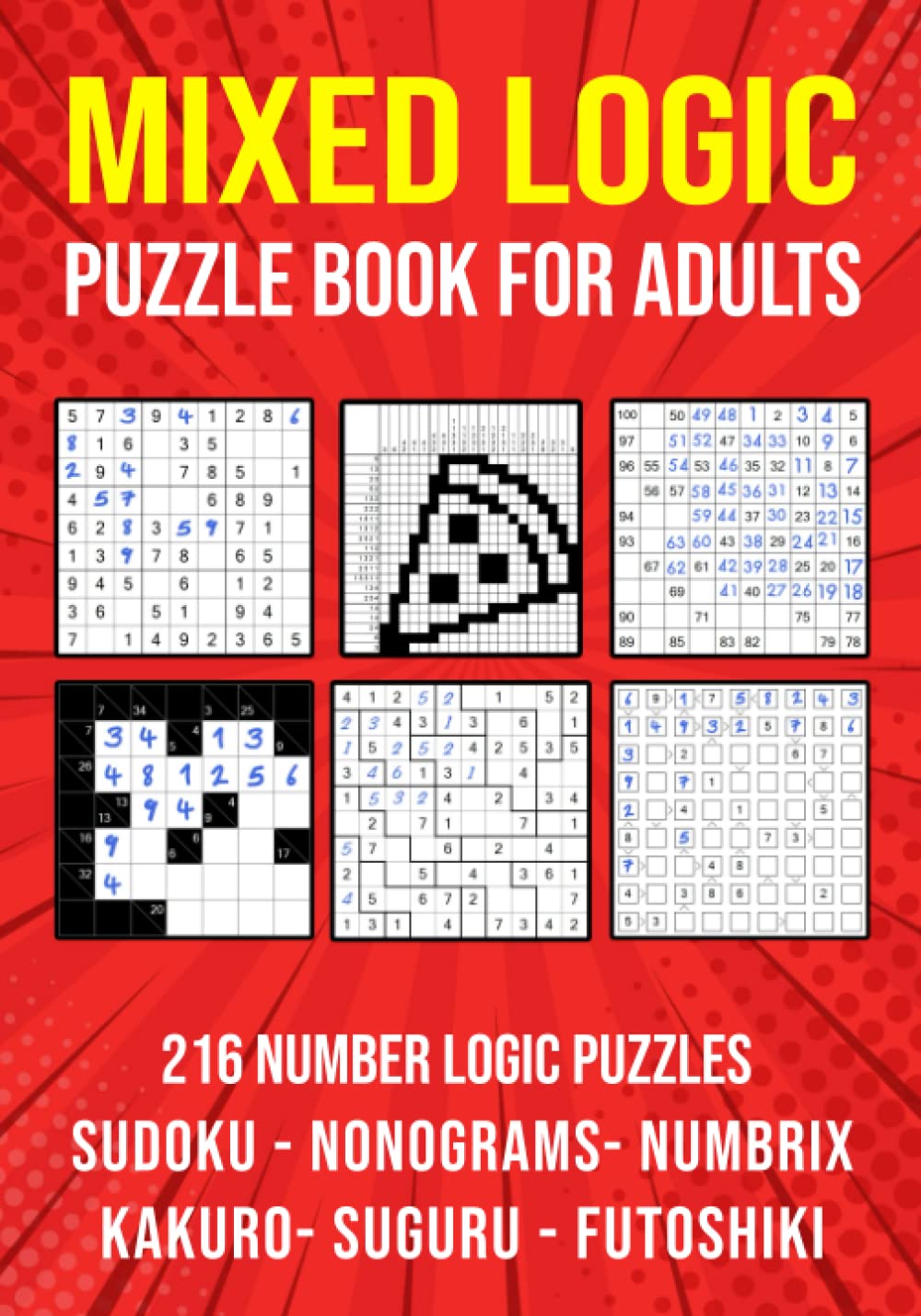
Logic Puzzle Book for Adults Mixed: Sudoku, Nonograms, kakuro, Suguru, Numbrix and Futoshiki Variety Puzzlebook
Frequently Asked Questions
How often should seniors do puzzles for brain training benefits?
Research suggests 3-4 times per week for optimal cognitive benefits. Even solving puzzles once a month shows measurable improvements, but more frequent engagement yields greater results.
Are digital puzzles as effective as printed puzzle books?
Both formats provide cognitive benefits, but printed puzzle books offer additional advantages like reduced screen time, better for eye health, and the tactile experience of writing. Many seniors also prefer the portability and reliability of physical books.
What's the best puzzle type for beginners?
Word search puzzles are ideal for beginners as they're less intimidating and provide immediate satisfaction. Mixed puzzle books are also excellent as they offer variety without requiring multiple book purchases.
Can puzzle solving prevent dementia?
While puzzles cannot prevent dementia, research suggests they may help delay cognitive decline when combined with other brain-healthy activities like exercise, social engagement, and proper nutrition. Always consult healthcare providers for cognitive concerns.
What makes large print puzzle books better for seniors?
Large print puzzle books reduce eye strain, make solving more comfortable for those with vision changes, and allow for longer, more enjoyable puzzle sessions. They're especially beneficial for seniors with presbyopia or other age-related vision changes.
🧠 Gain Your 2.5-Year Memory Advantage Today
Join thousands of seniors who've already started their brain training journey. Our scientifically-backed puzzle books are specifically designed for mature minds, featuring large print, progressive difficulty, and proven cognitive benefits.
⏰ Limited Time: Research shows benefits start in just 2-4 weeks of regular solving
Related Articles
Explore more ways to keep your mind sharp and engaged:
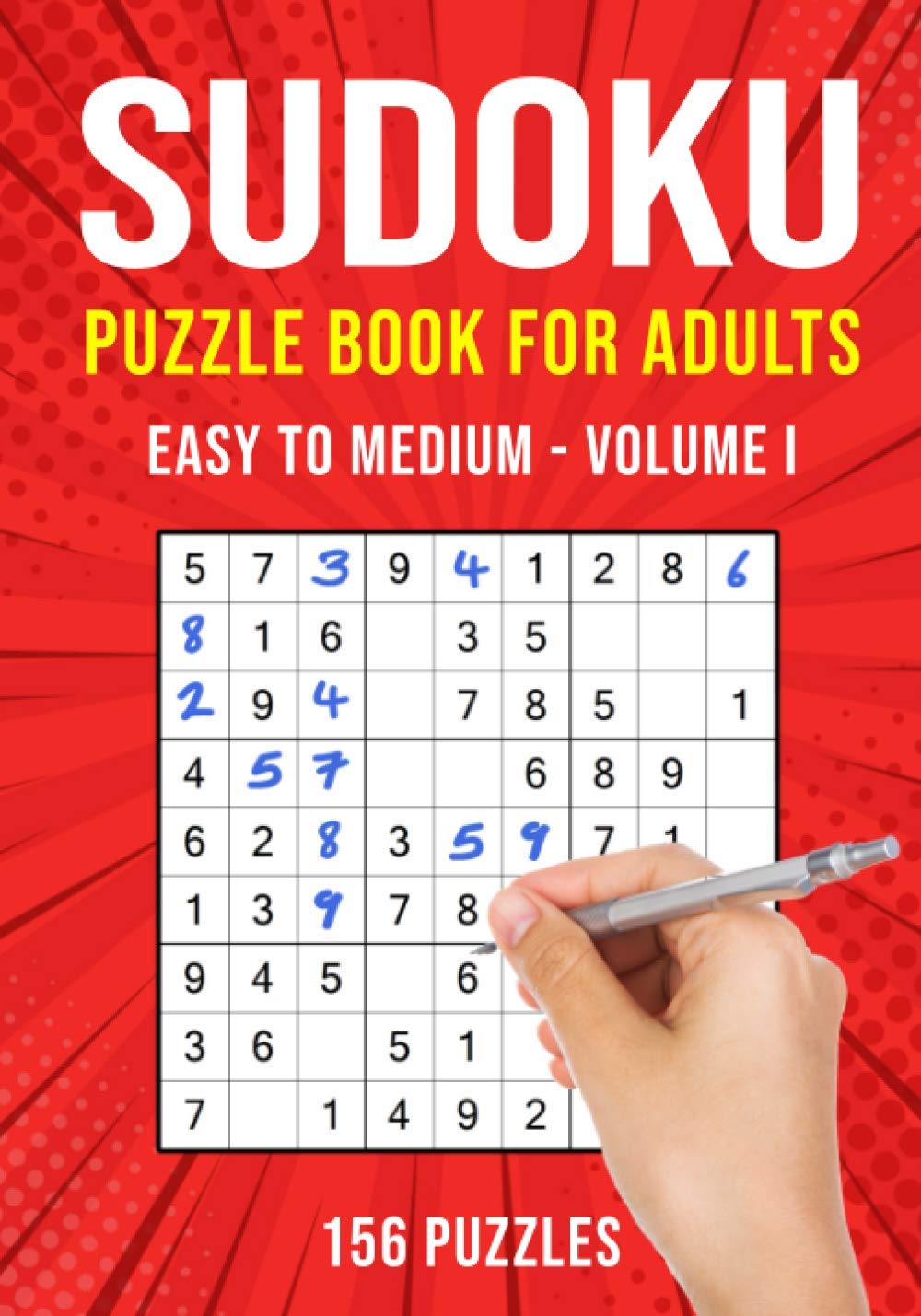
9. Enhanced Social Connection and Community Engagement
Puzzles can be surprisingly social activities that combat social isolation and loneliness - key factors in maintaining cognitive health and overall well-being as we age. Mental stimulation combined with social interaction provides compound benefits for senior brain health.
Social Benefits of Puzzle Activities:
Shared Family Activities
Working on puzzles with family or friends creates bonding opportunities and strengthens relationships
Natural Conversation Starters
Puzzles provide engaging discussion topics and shared interests in social settings
Senior Community Groups
Many retirement communities and senior centers have puzzle clubs for like-minded enthusiasts
Intergenerational Bonding
Puzzles can bridge age gaps, creating opportunities to connect with grandchildren and younger family members